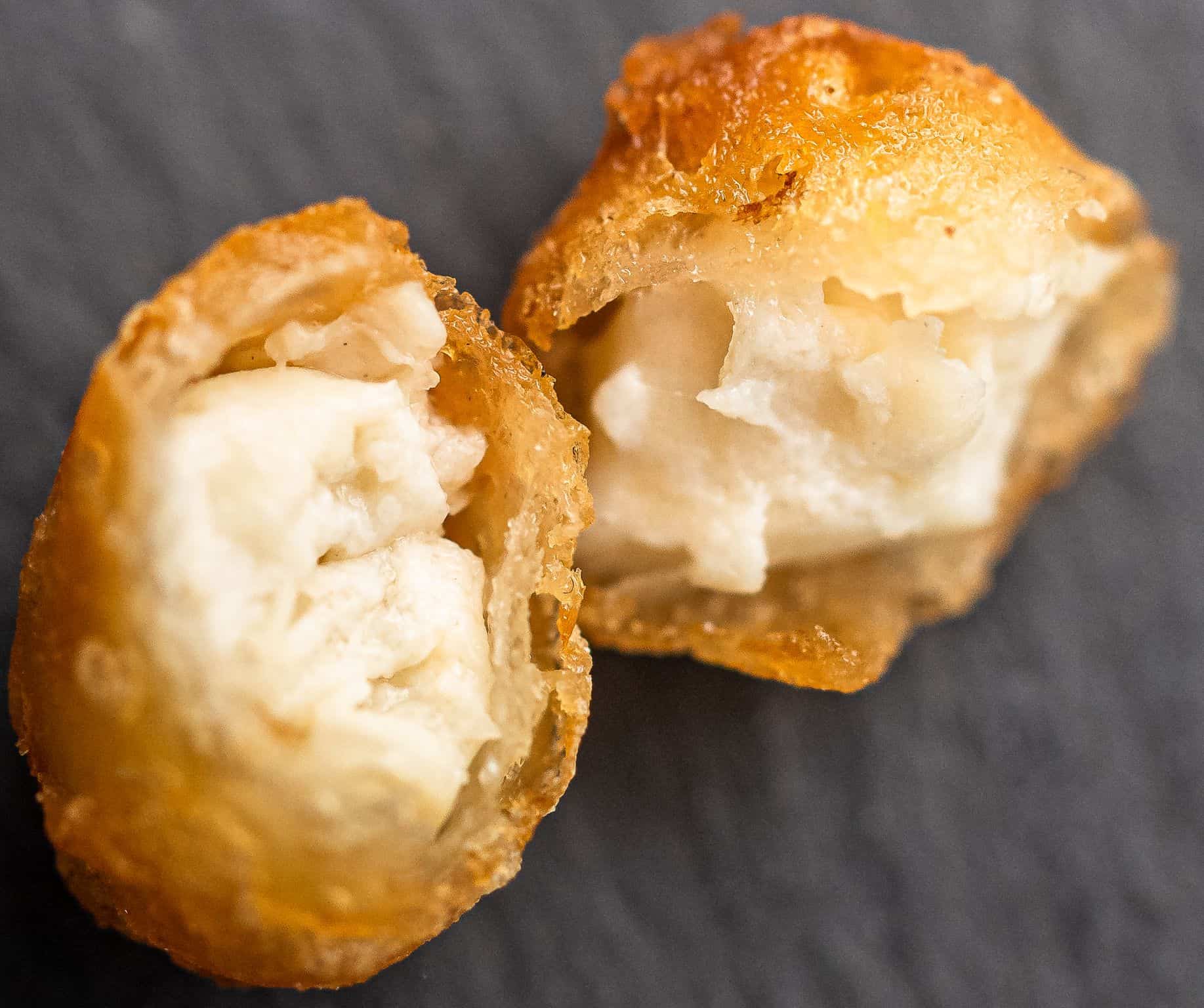Nomad Foods (NOMD), Europe’s leading frozen food company and one of the largest in the world, holds a strong portfolio of leading and heritage brands, most prominently Birds Eye in the UK and Ireland, Iglo in Germany and other parts of Europe (having acquired the Iglo Group in 2015), and Findus in Switzerland, Italy, France, Sweden, and other Northern European countries.
Kirsten Strey, Marketing Director, DACH, at Nomad Foods previously worked in various top FMCG brand companies and says that with having a family with two children she understands from personal experience the everyday challenge at the family dinner table. Here, Kirsten shares some interesting insights into the positioning of plant-based foods for the mainstream consumer; “The current discussion about plant-based nutrition is extremely linked to the term renunciation. This is not motivating and does not trigger enthusiasm,” she explains.
As Marketing Director for the D/A/CH region, how do you see Nomad Foods’ role in shaping the future of alternative proteins, particularly in the context of plant-based and cell-cultured products?
As Nomad Foods Group – with brands such as iglo, Findus, Birdseye, Ledo, and others – our goal is to take an active role in the design of a climate-relevant diet by offering a fascinating product portfolio and to inspire people with the plant-based product world. One of the drivers is our sub-brand Green Cuisine, which is the leading plant-based frozen food brand when talking about a future-oriented food lifestyle.
“…our goal is to take an active role in the design of a climate-relevant diet”
However, our approach is not limited to the so-called protein alternatives, such as our Dino ‘Chicken’ Nuggets, vegan Meat Balls, or vegan ‘Fish’ Fingers. We see this as a first step towards questioning existing eating habits and trying out plant-based product offerings. It is important for us to step away from the niche of so-called “alternatives” and to conquer a regular place as a main meal with attractive plant-based offerings. For this reason, we have already placed a wide range of exciting vegan and vegetarian products in the market, such as vegan Bami Goreng, Zucchini-Cheese Bites, or the Blubb-Cream-Spinach-Sticks.

Why is this so important? The current discussion about plant-based nutrition is extremely linked to the term renunciation. This is not motivating and does not trigger enthusiasm. In order to tap into the growth market of flexitarians, it is important to develop and offer really attractive, great-tasting products and to surprise people with interesting recipes. People are hungry for more variety on their plates because they themselves still have too little inspiration on how to prepare simple plant-based dishes very conveniently.
“It is important for us to step away from the niche of so-called “alternatives” and to conquer a regular place as a main meal”
Based on decades of experience in a wide range of vegetables, be it natural vegetables or popular traditional vegetable dishes, we have the expertise to design attractive plant-based offers and make the “New Food” category broader and more exciting.
What we call “new food” is still full of surprises and from our point of view, we are currently only seeing the first tip of an iceberg. That’s why it’s important to keep your eyes and ears open, to stay open to technology – such as food tech and biotechnology – and, for example, to open up new paths in cooperation. A good example is cell-cultured products.
As Nomad Foods, we have entered into a cooperation with the American company BlueNalu. It’s a promising startup in the development of cell-cultured fish. With the current challenges (new production technology, scalability, regulation debates, and political approval processes), we see this segment as a future project that still needs some time to place an offer in the market – especially the mass market.

Is Nomad Foods planning to reduce the proportion of animal raw materials in its products as part of its sustainability strategy? If so, could you elaborate on the timeline and goals for this transition?
As a company, we are guided by the findings of the Eat Lancet Commission’s Planetary Health Diet. This includes not only plant-based products but also fish. Both offers are good for a healthy and balanced personal diet, but also climate- and environmentally friendly. We don’t want to scare people away with renunciation but rather inspire them toward a flexitarian, meat-reduced lifestyle. The transition is an ongoing process and we have the perfect product portfolio in place to respond to consumers’ needs.
What are the recent significant milestones that Nomad Foods has achieved in the plant-based area, and how do these advancements align with the company’s overall growth strategy?
In our growth development in the plant-based area, we are learning a lot about the markets and consumer behavior. On the one hand, general food inflation has an impact on market dynamics. On the other hand, consumer attitudes have evolved and are leading to changes in communication. While rational factors were initially in the foreground as a motive for consumption, the drivers in the ‘New Food’ category are now emotions, pleasure, and enjoyment of food. The lifestyle character of food takes on greater importance, so that it is about positive motivation and much less about a guilty conscience about the climate impact or a balanced diet.

The impact of this development varies from country to country. In German-speaking countries, we are already engaging in a more emotional dialogue, with the result that business-wise we are developing much better than the plant-based market as a whole.
With the Green Cuisine range being a significant growth driver, do you foresee this trend continuing? What factors contribute to its sustained popularity?
The development of the plant-based area is already in the next phase. The focus on substitutes, especially meat substitutes, is a thing of the past, today it’s all about a diverse design of a plant-based diet that is fun – and the trend is rising. The terminology of Planetary Health Lifestyle with its sweet spot on “lifestyle” already sums it up. It describes the shift of the future – an emotionally driven narrative to address the flexitarian-oriented consumers to push its popularity across the mass market.
Have you noticed variations in consumer behavior towards plant-based products in different countries? How does this impact your marketing and product development strategies?
The megatrend towards plant-based nutrition is taking place across all national borders. What they have in common is that people are attached to their respective traditional local eating habits and are looking for inspiration to incorporate more plant-based meals into their everyday lives.

There are small differences in market developments. In regions where meat consumption has played a major role so far, people are initially looking for so-called substitute products that come close to the animal products they have learned. In other regions, where vegetables are already a large part of their local food culture, people are looking less for substitutes and more for exciting, diverse offerings that help enrich their diet. These aspects need to be addressed in marketing communication in order to support people in their respective needs.
What are some of the unique challenges and particularities you face in different countries regarding trade, consumer behavior, and regulation in the plant-based sector?
The core for the success of a plant-based diet is a superior taste and the preservation of the pleasure of eating. This is a similar situation in all countries. Too often, products are launched too quickly not meeting taste expectations. This is detrimental to the market development, as first-time consumers in this new food category initially turn away due to the negative experience and won’t return so quickly. As an established brand company with a high reputation for quality, we continue to develop our recipes until the products are truly a pleasure. This sometimes takes a little longer, but we owe it to our consumers and our reputation.
There are differences between countries in terms of their learned eating habits and their curiosity to try something new. In countries with a very strong traditional cuisine, the challenges are somewhat greater. We counter this, for example, with localized recipe variants that pick up people’s learned tastes.
All in all, we are still at the beginning of a long journey. We, as well as the regulators, are constantly learning. This starts with the product names and ends with ingredients. For example, we are incredibly proud that we are the first brand to manage to avoid methylcellulose as an ingredient and do free of additives for vegan ‘Fish’ Fingers. This is a great innovative step towards being able to offer even more clean-label products in the future.

Which products in the plant-based range have emerged as bestsellers, and what do you think drives their success?
On the one hand, Green Cuisine’s bestsellers include offers that have been learned by consumers in such a way that they can be found in the frozen category. Top sellers are vegan Dino Nuggets and ‘Chicken’ Nuggets, Veg and Spinach Fingers, vegan ‘Fish’ Fingers and different kinds of frozen meals like Bami Goreng or vegan Lasagne.
On the other hand, consumers have learned that they can find a huge selection of trendy snacking options in the frozen category. Therefore, falafel or the zucchini thalers are enjoying increasing popularity. The plant-based snacking products are very much in vogue, because they convey the fun of plant-based nutrition, creativity and lightness, and create childhood memories and positive emotions. Exactly what is necessary for the sustainable success of the plant-based category.




